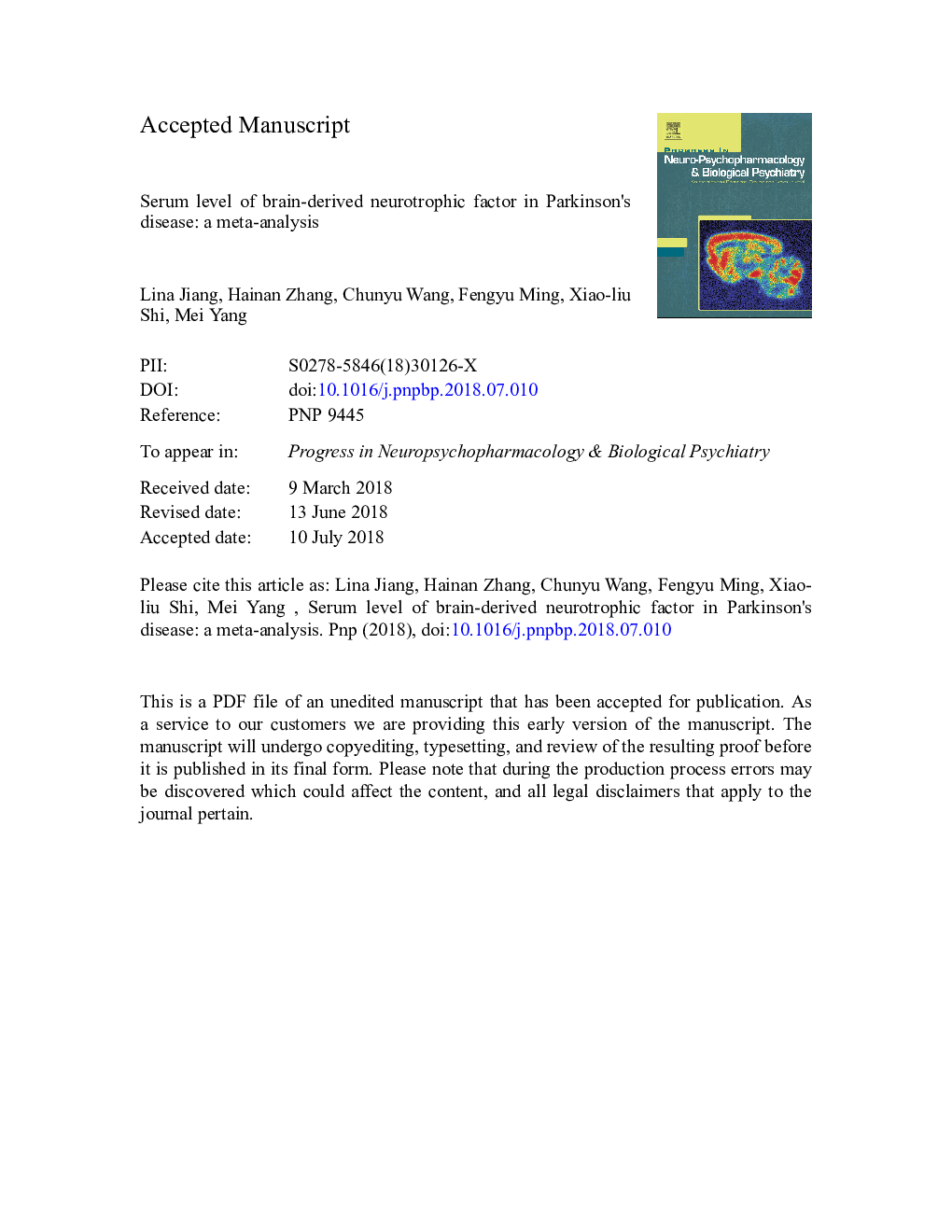| Article ID | Journal | Published Year | Pages | File Type |
|---|---|---|---|---|
| 8537147 | Progress in Neuro-Psychopharmacology and Biological Psychiatry | 2019 | 22 Pages |
Abstract
Brain-derived neurotrophic factor (BDNF), a critical modulator in the neurodevelopment and maintenance of both central and peripheral nervous systems, is regarded as a potential therapeutic target of Parkinson's disease (PD). However, its association with PD remains unclear and the data are inconsistent. To explore the correlation, studies reporting BDNF levels in PD patients and healthy controls are searched and a sample of 1496 participants are pooled in the meta-analysis, demonstrating significantly decreased serum levels of BDNF in PD patients when compared with the healthy controls (SMDâ¯=â¯â1.03; 95% CI [â1.83, â0.23]; Pâ¯=â¯.012). Meta-regression analysis indicates gender is an important confounding factor (Adj R2â¯=â¯69.20%, pâ¯=â¯.004, I2 resâ¯=â¯90.64%), whereas age (Adj R2â¯=â¯11.91%, Pâ¯=â¯.95, I2 resâ¯=â¯96.86%), H-Y stages of PD progression (Adj R2â¯=â¯â30.18%, Pâ¯=â¯.612, I2 resâ¯=â¯96.62%) and MoCA score assessed cognitive impairment (Adj R2â¯=â¯2.18%, Pâ¯=â¯.517, I2 resâ¯=â¯64.41%) show few moderating effects. The research provides evidence of moderate quality that blood levels of BDNF are decreased in PD patients despite various influencing factors, supporting an association between decreased level of peripheral BDNF and PD.
Keywords
Related Topics
Life Sciences
Neuroscience
Biological Psychiatry
Authors
Lina Jiang, Hainan Zhang, Chunyu Wang, Fengyu Ming, Xiaoliu Shi, Mei Yang,
